Character Reference Letter for Immigration Template and Tips
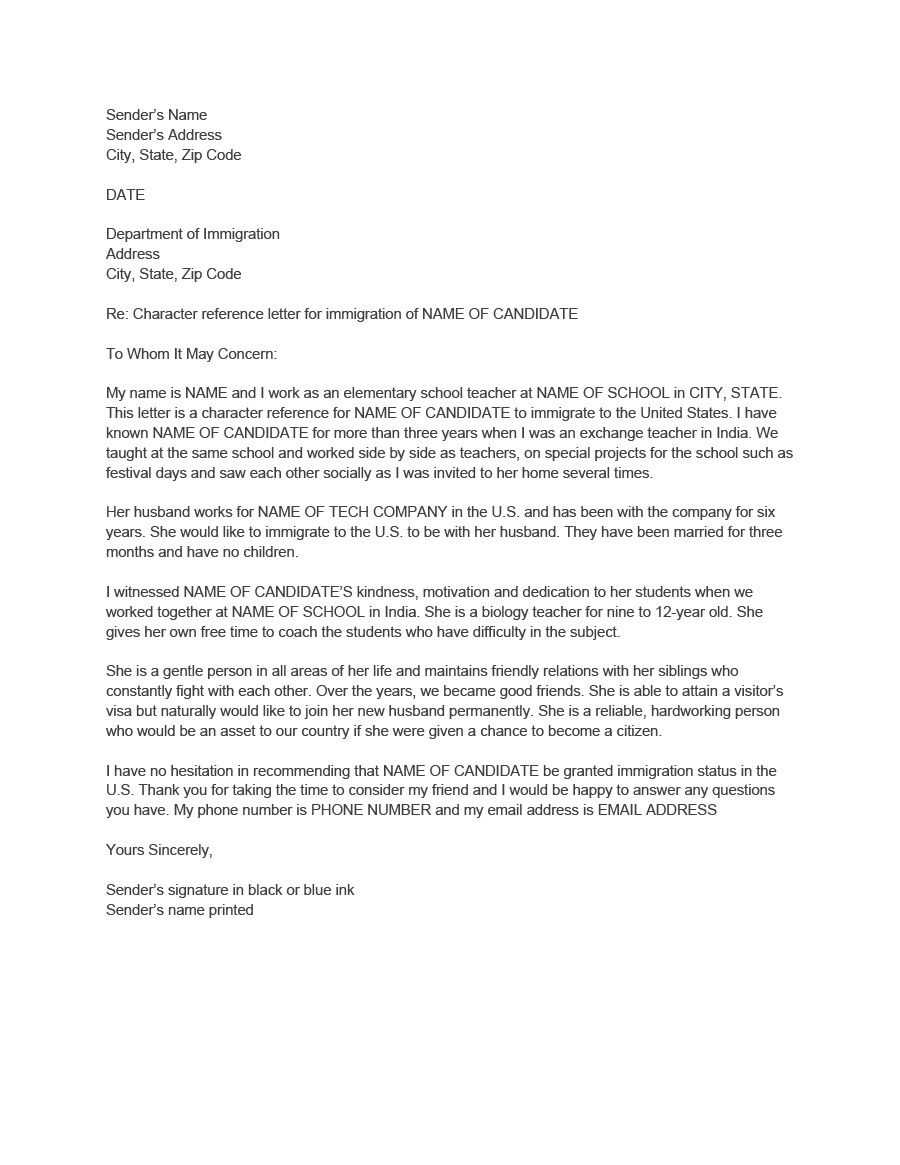
When applying for legal processes such as visa applications, residency requests, or citizenship procedures, a supportive document from someone who knows the applicant personally can play a significant role. This kind of endorsement often highlights an individual’s character, reliability, and integration into the community. It serves as proof that the applicant is a trustworthy and responsible person, thus adding weight to their case.
Essential Components of a Strong Endorsement
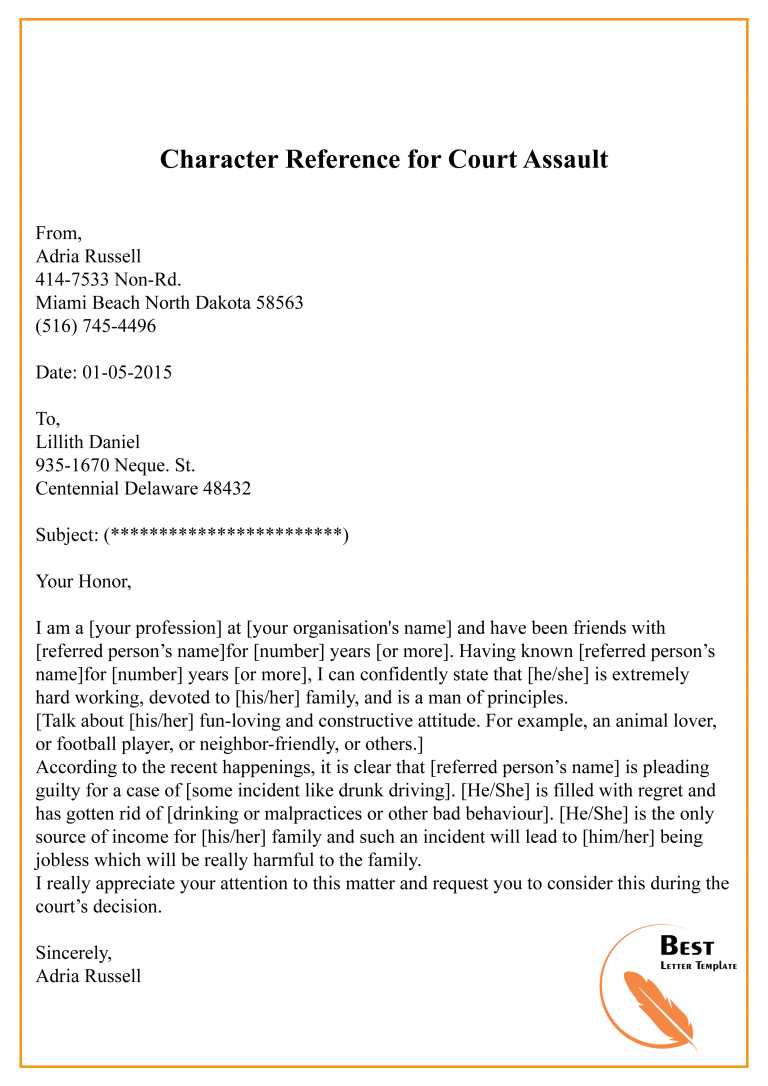
To create a convincing testimonial, there are certain elements that need to be included:
- Introduction of the Writer – Begin by explaining your relationship with the individual and the length of time you’ve known them.
- Personal Qualities – Describe the applicant’s personality traits such as honesty, kindness, or reliability that make them a good candidate for their application.
- Specific Examples – Share real-life instances where the applicant demonstrated positive characteristics or actions that align with the application’s goals.
- Conclusion – Close with a strong statement of support, emphasizing why you believe the applicant should be accepted into the desired program or country.
Why This Document Matters
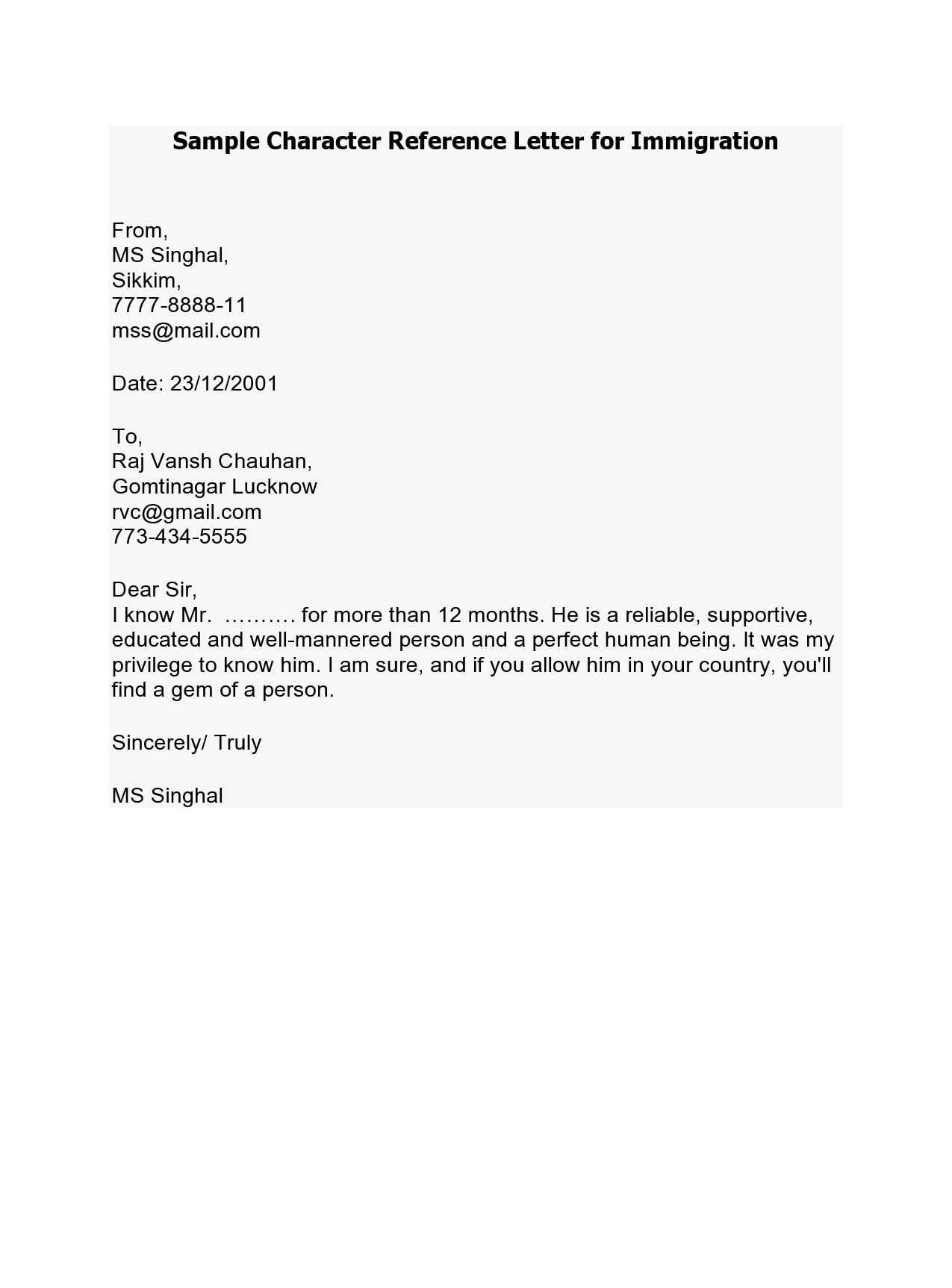
Such endorsements provide a personal touch to the often impersonal nature of legal processes. They give officials a glimpse into the character and integrity of the applicant, offering a broader understanding of their suitability beyond forms and applications.
Tips for Writing an Effective Testimonial
- Be honest and straightforward. Avoid exaggeration, as credibility is key.
- Keep it professional but personal. While the tone should be respectful, it should also reflect genuine belief in the applicant.
- Be specific. Vague statements are less persuasive than concrete examples.
Final Thoughts
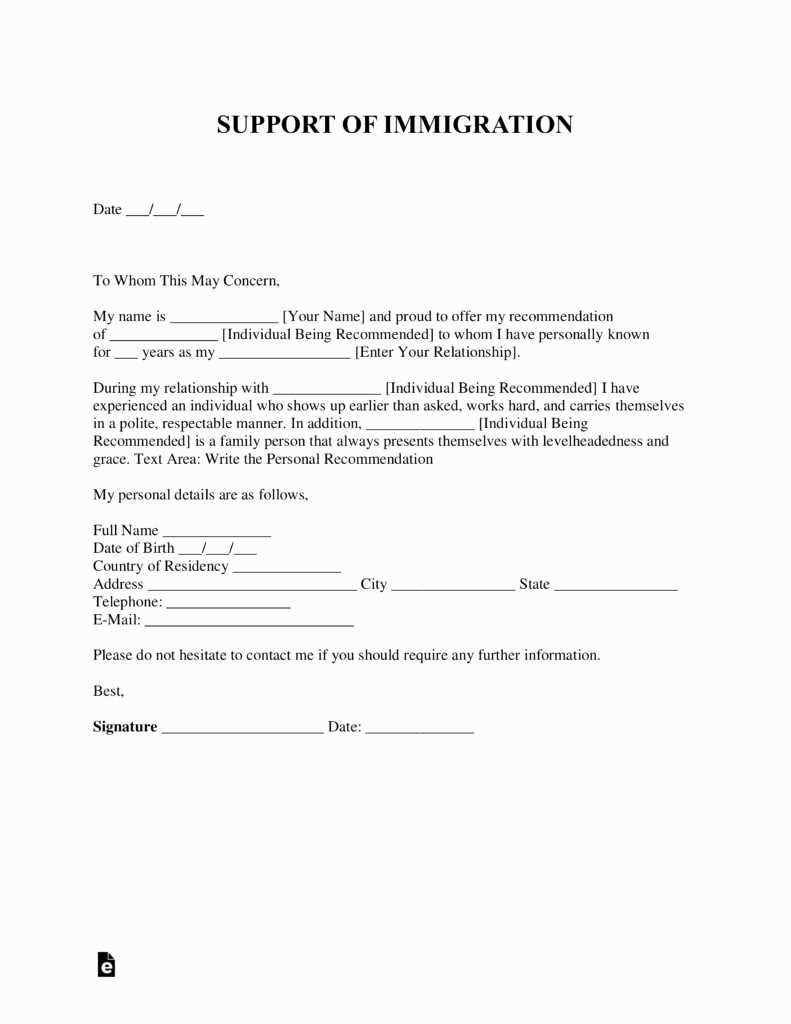
Writing a strong testimonial can make a significant difference in an applicant’s chances. By providing clear, honest, and thoughtful information, you can offer essential support that strengthens their case.
What is a Personal Testimonial? Importance in Legal Procedures and How to Write Effectively
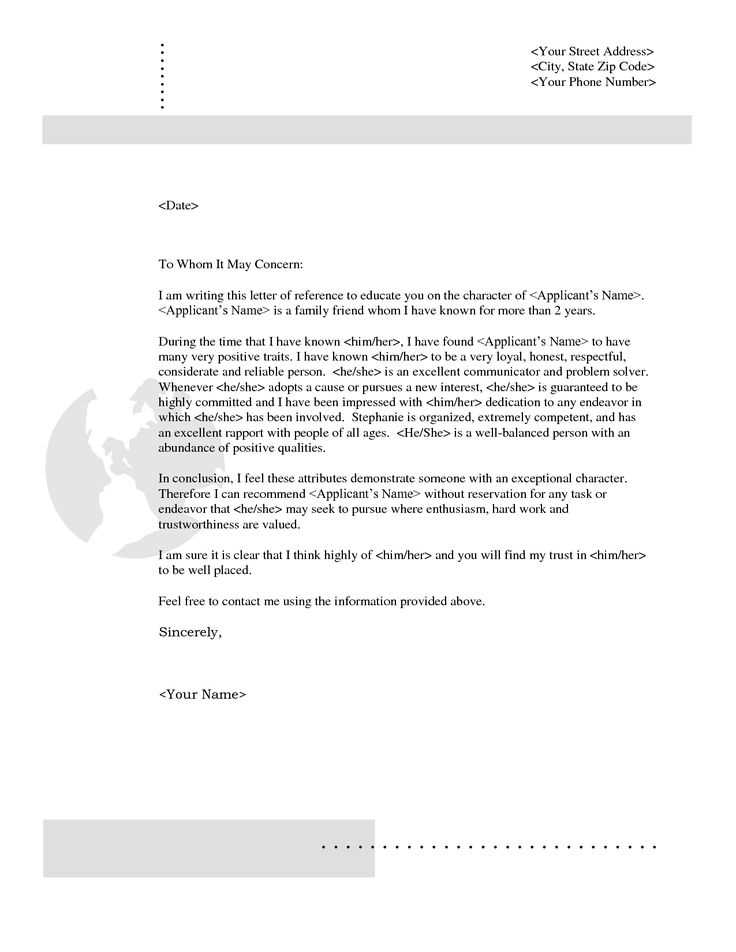
When applying for legal status or residency in a new country, individuals often need to provide additional support for their application. A personal endorsement from someone who knows the applicant well can greatly strengthen the case. These testimonials offer insight into the applicant’s personality, reliability, and their ability to integrate into the community. In this section, we will discuss the key aspects of writing a compelling document that will serve as an effective piece of support for any legal process.
Key Elements of an Effective Testimonial
To ensure the endorsement carries weight and relevance, the following elements should be present:
- Relationship with the Applicant – Clearly define how long you have known the individual and the nature of your relationship.
- Positive Traits and Skills – Describe the applicant’s best qualities that make them suitable for their legal request, such as honesty, work ethic, or community involvement.
- Specific Examples – Back up claims with real-life instances that demonstrate the applicant’s character in action.
- Conclusion of Support – End with a strong, affirming statement that supports the applicant’s suitability for their legal objective.
Common Mistakes to Avoid
While writing, be mindful of these common errors:
- Providing vague or generic statements that do not add specific value to the case.
- Using excessive flattery or exaggeration, which can diminish credibility.
- Failing to clearly explain your relationship to the applicant and the context of your endorsement.
- Not following the proper formatting or structure, which can make the document appear less professional.
By adhering to these principles and avoiding common pitfalls, your testimonial will become a valuable asset in any legal application, providing a strong and credible endorsement that can help the applicant succeed.